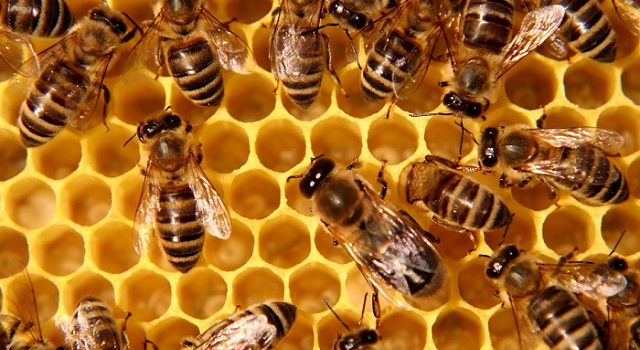
Kampala, Uganda | THE INDEPENDENT | The poor quality of hives used by farmers in the Rwenzori region is affecting beekeeping.
Most of the farmers use traditional beehives made of logs, banana fibres, mud and straw, gourd, woven grass or clay pots and are small in size.
Eliezer Magezi is the Manager Bunyangabu Beekeepers Cooperative Society Limited – BBC, which is over 20 years old and brings together beekeepers from the whole region.
However, despite having 548 members, the cooperative has never exported even a single kilogram of honey leave alone meeting the demand in the local market.
Magezi says that last year, they produced only 26 tonnes of honey which was locally consumed within the region.
He says that from their survey they conducted, it was discovered that most farmers are unable to procure the modern types of hives like Kenya Top Bar – KTB which is long-lasting, easy to use, clean, and gives more honey because it is spacious.
Magezi explains that in single season, a KTB hive can give at least 30 kilograms of honey compared to a traditional one which gives between eight and 10 kilograms.
Robert Mwanguhya, a beekeeper and member of BBC from Rubona Town Council, notes that some of the modern hives are costly for farmers. He cites KTB hives which cost between 100,000 and 120,000 shillings.
Mwanguhya says that most of the traditional hives are prone to pests which attack the bees.
Sam Bisanga, also a member of Bunyangabu Beekeepers Cooperative, says that the other challenge with traditional hives is that when harvesting honey, they are first destroyed because they can’t be opened and closed. In the process, he says honey gets contaminated and its quality gets compromised.
Bisanga is optimistic that if they get modern hives with some skilling in beekeeping, they can improve on the quality and quantity of honey produced.
Currently, the cooperative has started making some of the KTB hives for sale to farmers, but Magezi says very few have bought them.
He discloses that as BBC, they are trying to lobby funding from government so that the hives can be subsidized to a price affordable to most of the members.
Other than poor hives, the beekeepers are also facing other challenges like lack of modern storage facilities which is forcing them to store honey in jerry cans which comprises the quality.
*****
URN
 The Independent Uganda: You get the Truth we Pay the Price
The Independent Uganda: You get the Truth we Pay the Price



